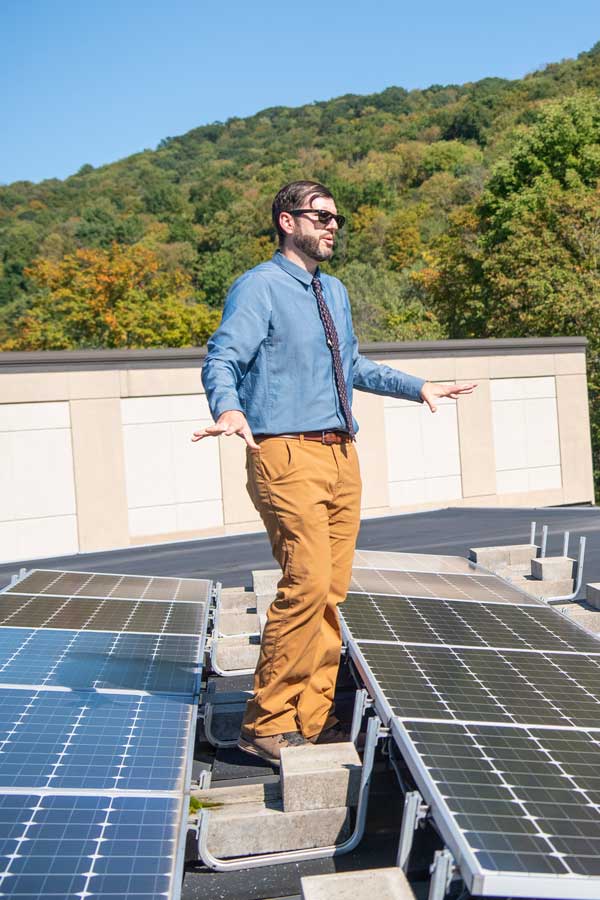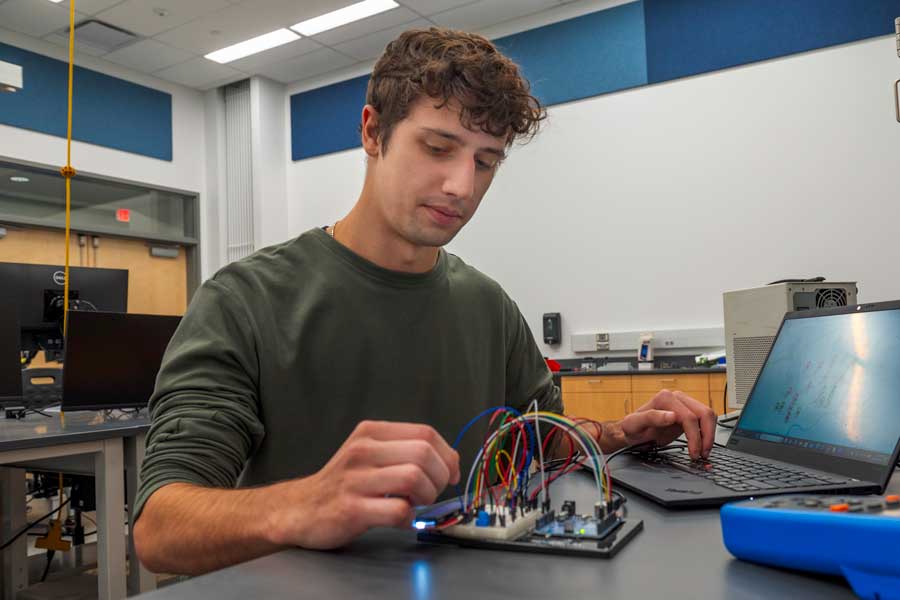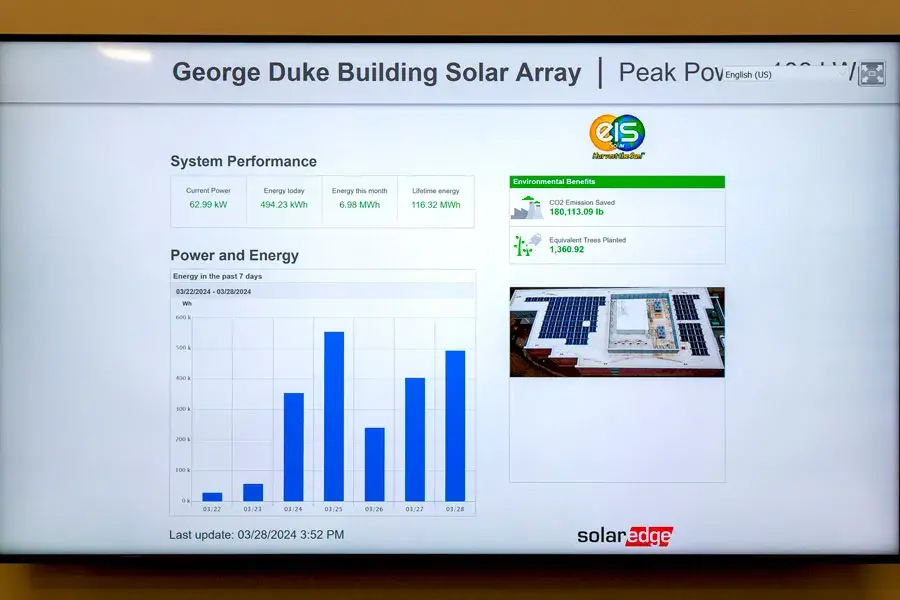
Energy Science and Technology - BS
We’ve built a new building designed just for you.
Why study energy science and technology at Pitt-Bradford?
How do we harness the various forms of natural energy? How do we extract other forms of energy while protecting the environment? How do we maximize the stores of energy we already have?
Our program can help you answer those questions. You’ll learn multi-disciplinary engineering skills through physics, calculus, and engineering analysis courses.
What will I learn?
During your first two years, you'll be introduced to a variety of energy-related industries. Then you can focus on a specific area: energy use in buildings, alternative energy production, petroleum technology, nuclear energy, or energy and the environment. In your upper-level courses and capstone project, you’ll work on sensors and controls.

What can I do with a degree in energy science and technology?
This approach will make you more marketable in the job market.
Job titles:
- Analyst
- Drafter
- Drill site manager
- Energy auditor
- Energy manager
- Environmental analyst
- Field service technician
- Operations manager
- Wind turbine technician
Employers:
- Corporations and private industry
- Design firms
- Energy start-ups
- Government agencies
- Research laboratories
- Colleges or universities
- Featured courses

Alex Marrone is all about energy – generating it, measuring it, and being part of it.
-
ES 0112
Introduction To Energy Science And TechnologyThe use of energy is an inseparable component of human life. This course will serve as an introduction to the complex energy landscape by highlighting the key technical, environmental, and economic issues associated with the development and use of modern energy sources. Students will become familiar with the methods for determining, comparing, and improving the energy efficiency of vehicles, buildings, and industrial processes. Finally, the most advanced efficiency and alternative energy technologies will be discussed. -
CHE 0036
Chemical Engineering Thermodynamics 1Development of the laws of thermodynamics using a macroscopic approach. Fundamental concepts are stressed. Emphasis is placed on chemical engineering applications in problem recitation sessions. Concepts of work, heat, internal energy, potential energy, kinetic energy, enthalpy, entropy, and free energy are developed. Thermodynamic properties and equations of state are defined.
Program-Related News

Governor to honor campus for solar array
President Esch and Dr. Matt Kropf to accept award April 30th.

Admissions events planned for fall
Open houses and Duke Days to take place October through January

Report says campus making progress reducing carbon
Solar panels added since study will reduce emissions more.